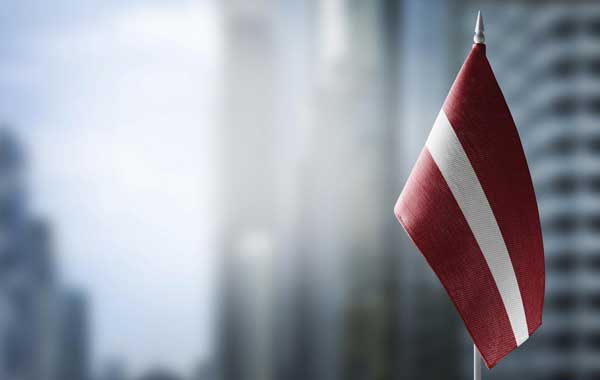Latvia is a small European country located on the Baltic Sea between Lithuania and Estonia. With a population of only 1.9 million, Latvia has a rich history and culture influenced by both Scandinavian and Russian roots. This article will provide an in-depth look at what life is really like in Latvia today.

Geography and Climate of Latvia
Latvia is divided into four main regions – Kurzeme, Zemgale, Vidzeme and Latgale. The landscape consists of gentle hills, forests, rivers and a long coastline along the Gulf of Riga. Winters in Latvia are bitterly cold with average temperatures around -4°C (25°F) in January. Summers tend to be mild and sunny with temperatures averaging 17°C (63°F) in July. The capital and largest city is Riga, located on the Baltic Sea. With about 650,000 residents, Riga accounts for one third of Latvia’s total population. Other major cities include Daugavpils, Liepāja and Jelgava. Tourism is concentrated in Riga as well as along the coastline during the warmer months.
Latvia’s Diverse History and Culture
Latvia has a long history marked by foreign rule. The country was dominated by Swedish, Polish, Russian and German powers over the centuries before finally gaining independence in 1918. As a result, Latvian culture has been heavily influenced by its neighbors. Latvia has its own language, Latvian, which is one of only two surviving Baltic languages. Russian is also commonly spoken, a legacy of Soviet occupation. Latvia is historically Lutheran Protestant but there are also significant Catholic and Orthodox Christian minorities. Riga’s Old Town is renowned for its medieval architecture and cobblestone streets. The city also boasts a thriving arts scene, from the Latvian National Opera to various museums and galleries. Folk music and dance remain an important part of Latvian cultural heritage.
The Latvian People
Latvians are known to be rather reserved and cool upon first interactions. However, they are also very educated and multilingual. English is widely spoken, especially among younger generations in cities. Once you get to know them, Latvians reveal their warmth and hospitality. Latvians tend to dress very stylishly, taking great pride in their appearance. It’s not uncommon to see locals strolling in chic attire. Beauty and fashion are important parts of the culture. Despite economic struggles, Latvians maintain a strong sense of national pride. They persevered through decades of foreign subjugation before finally regaining independence. Freedom and nationalism continue to define the Latvian spirit.
Latvia’s Developing Economy
Since separating from the Soviet Union in 1991, Latvia has worked to develop a modern market economy. Unfortunately, progress has been constrained by the legacy of Soviet policies and limited natural resources. Latvia’s GDP per capita remains below the EU average. Unemployment is an ongoing issue, currently around 6.2%. The economy relies heavily on timber processing, agriculture, food products and telecommunications. Tourism and transit services are also major industries in Latvia. While business regulations have improved, Latvia still faces challenges with corruption, red tape and weak rule of law. The country is working to reform its institutions and regulations to attract more investment.
Cost of Living in Latvia
Despite lower average wages, Latvia remains one of the more affordable European countries thanks to a lower cost of living. For example, a meal at an inexpensive restaurant may cost around €12 while a liter of milk is under €1. Monthly expenses for one person generally total €700-800 on average. Housing is relatively cheap in Latvia, especially outside of Riga. A one-bedroom apartment in the capital averages €500 per month but prices are far lower in rural areas. Public transport and taxis are also very affordable. For visitors, hotels and vacation rentals offer good value. Museums, parks and other attractions have reasonable entry fees. With some budgeting, Latvia can be a very wallet-friendly destination.
Immigration and Residency in Latvia
Latvia offers several options for those looking to take up long-term residency or potentially citizenship. The temporary residence permit is issued for up to 5 years while permanent residency requires 10 years of residing in Latvia. One route is obtaining a residency permit by investing €250,000 into Latvian real estate. Another option is marrying a Latvian citizen and providing proof of sufficient income. Gaining citizenship requires passing a Latvian language exam, demonstrating familiarity with the Constitution and proving loyalty. Dual citizenship is allowed but the process can be lengthy.
The Healthcare System in Latvia
Healthcare in Latvia is universal and partially funded through compulsory insurance modeled after the Soviet Semashko system. While Latvians are entitled to basic services, coverage is not as comprehensive as other EU countries. Out-of-pocket payments may be required for doctor visits, hospital stays and prescription medications. There are also often long wait times for procedures and specialists. Private healthcare is limited but available. Overall, Latvia is still developing its healthcare infrastructure. The system can feel disorganized and underfunded. Expats are advised to purchase international private insurance for more comprehensive coverage.
Is Latvia a Good Fit?
For those seeking an authentic European experience beyond major tourist hubs, Latvia offers pristine nature, historic cities like Riga and a unique culture. Residency is fairly accessible with the right visas and investments. Navigating daily life requires patience and flexibility as infrastructure continues developing. Learning the local language is highly advised to better integrate into society. Latvia may not suit those with higher incomes or needing more extensive social services. However, Latvia provides a high quality of life at a reasonable cost. Its peaceful surroundings and friendly people make it easy to settle into a relaxed lifestyle. For the right individuals seeking affordability in Europe, Latvia has much to offer.
Conclusion
While often overlooked, Latvia is an underrated European gem offering natural beauty, rich traditions and affable locals. Challenges remain with unemployment, infrastructure and social services but steady progress is being made. Latvia rewards those looking to immerse themselves in authentic local culture while enjoying a lower cost of living in Europe. With an open mind and sense of adventure, building a new life in Latvia can unlock deeply rewarding experiences.
